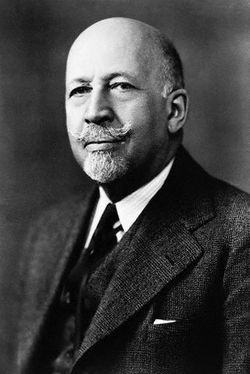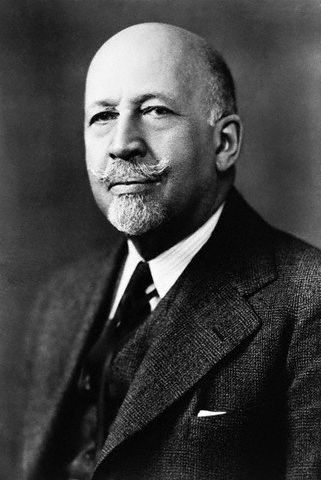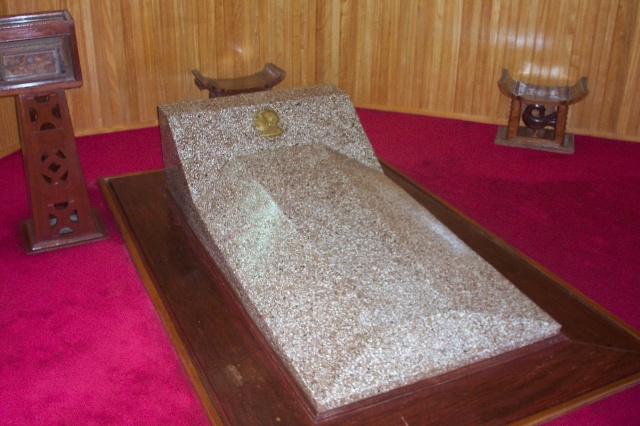Social Reformer, Author. He was the co-founder of the Niagara Movement, the National Association for the Advancement of Colored People (NAACP), and the Pan-African Congress, who was a scholar and seeker of racial equality for African-Americans and one of the most significant leaders of his generation. He, along with Frederick Douglass and Booker T. Washington, is considered one of the most influential African-Americans before the Civil Rights Movement of the 1960's. Born only six years after emancipation, he was active well into his nineties. He was born in Great Barrington, Massachusetts in 1868, and received his bachelors degree from Fisk University in Nashville, Tennessee in 1888, going on to earn a bachelors degree from Harvard University in 1890, his masters in 1891, and in 1896 was the first African-American to receive a PhD from Harvard University. He used Atlanta University as his base from 1897 to 1910 to oppose Booker T. Washington's educational views, which he felt were too limiting. In 1905, he helped organize the Niagara movement and in 1909 was co-founder of the NAACP. Between 1910 and 1934, he edited the NAACP's journal "The Crisis", and served as the organization's director of publicity and research. He was the author of several books throughout his life, including "The Philadelphia Negro: A Social Study" (1899), "Atlanta University Studies" (1897), "Soul of Black Folk" (1903), and "Black Reconstruction" (1935). In 1934, he resigned from the NAACP and returned to Atlanta University, where he served as head of the Department of Sociology until 1944. Although W.E.B. Du Bois was a major leader in the early civil rights movement in America, ultimately he became delusional with prospects for equality of African-Americans. Through out his life at various times, he was accused of elitism, communism, and black separation. In later years, he embraced socialism, and in 1961 joined the United States Communist Party and two years later, he gave up his United States citizenship. Although never convicted of a crime, his passport was confiscated by U.S. government in 1951 for eight years. He and his wife Shirley moved to Ghana, where they became a citizens of that country. He died in Accra, Ghana at age 95.
Social Reformer, Author. He was the co-founder of the Niagara Movement, the National Association for the Advancement of Colored People (NAACP), and the Pan-African Congress, who was a scholar and seeker of racial equality for African-Americans and one of the most significant leaders of his generation. He, along with Frederick Douglass and Booker T. Washington, is considered one of the most influential African-Americans before the Civil Rights Movement of the 1960's. Born only six years after emancipation, he was active well into his nineties. He was born in Great Barrington, Massachusetts in 1868, and received his bachelors degree from Fisk University in Nashville, Tennessee in 1888, going on to earn a bachelors degree from Harvard University in 1890, his masters in 1891, and in 1896 was the first African-American to receive a PhD from Harvard University. He used Atlanta University as his base from 1897 to 1910 to oppose Booker T. Washington's educational views, which he felt were too limiting. In 1905, he helped organize the Niagara movement and in 1909 was co-founder of the NAACP. Between 1910 and 1934, he edited the NAACP's journal "The Crisis", and served as the organization's director of publicity and research. He was the author of several books throughout his life, including "The Philadelphia Negro: A Social Study" (1899), "Atlanta University Studies" (1897), "Soul of Black Folk" (1903), and "Black Reconstruction" (1935). In 1934, he resigned from the NAACP and returned to Atlanta University, where he served as head of the Department of Sociology until 1944. Although W.E.B. Du Bois was a major leader in the early civil rights movement in America, ultimately he became delusional with prospects for equality of African-Americans. Through out his life at various times, he was accused of elitism, communism, and black separation. In later years, he embraced socialism, and in 1961 joined the United States Communist Party and two years later, he gave up his United States citizenship. Although never convicted of a crime, his passport was confiscated by U.S. government in 1951 for eight years. He and his wife Shirley moved to Ghana, where they became a citizens of that country. He died in Accra, Ghana at age 95.
Bio by: Curtis Jackson
Family Members
Advertisement
See more DuBois memorials in:
Records on Ancestry
Advertisement













